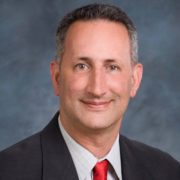QUESTION: I have an employer willing to sponsor me. What is a ‘specialty occupation’ and can I get an H-1B?
Answer: The job must meet one of the following criteria to qualify as a specialty occupation:
Bachelor’s or higher degree or its equivalent is normally the minimum entry requirement for the position. The degree requirement for the job is common to the industry or the job is so complex or unique that it can be performed only by an individual with a degree. The employer normally requires a degree or its equivalent for the position. The nature of the specific duties is so specialized and complex that the knowledge required to perform the duties is usually associated with the attainment of a bachelor’s or higher degree.
Question: How must I qualify for the H-1B?
Answer: For you to qualify to accept a job offer in a specialty occupation you must meet one of the following criteria: Have completed a US bachelor’s or higher degree required by the specific specialty occupation from an accredited college or university. Hold a foreign degree that is the equivalent to a US bachelor’s or higher degree in the specialty occupation. Hold an unrestricted state license, registration, or certification which authorizes you to fully practice the specialty occupation and be engaged in that specialty in the state of intended employment. Have education, training, or progressively responsible experience in the specialty that is equivalent to the completion of such a degree, and have recognition of expertise in the specialty through progressively responsible positions directly related to the specialty. Of course this last option would be used only when there is no B.S degree.
Question: Must I file the Labor Condition Application?
Answer: Yes. The prospective employer must file an approved Form ETA-9035, Labor Condition Application (LCA), with the Form I-129, Petition for a Nonimmigrant Worker.
Question: Is there a limit on H-1B’s per year?
Answer: Yes, there are only 65,000 for regular H-1B’s and 20,000 for advanced degree H-1B’s. US Citizenship and Immigration Services (USCIS) today announced it continues to accept H-1B nonimmigrant petitions that are subject to the fiscal year (FY) 2013 cap. The agency began accepting these petitions on April 2, 2012.
USCIS has received approximately 17,400 H-1B petitions counting toward the 65,000 cap, and approximately 8,200 petitions toward the 20,000 cap exemption for individuals with advanced degrees.
USCIS will provide regular updates on the processing of FY 2013 H-1B petitions. These updates and helpful filing information can be found at USCIS’s website highlighting the H-1B program. Should USCIS receive the number of petitions needed to meet the cap, it will issue an update advising the public that the FY 2013 H-1B cap has been met as of a certain date, known as the “final receipt date.” The date USCIS informs the public that the cap has been reached may differ from the actual final receipt date.
If necessary, USCIS may randomly select the number of petitions received on the final receipt date that will be considered for final inclusion within the cap. The agency will reject petitions subject to the cap that are not selected, as well as those received after the final receipt date. Whether a petition is received by the final receipt date will be based on the date USCIS physically receives the properly filed petition, not the date that the petition is postmarked.
Cases for premium processing (faster processing of certain employment-based petitions and applications) of H-1B petitions filed during an initial five-day filing window are undergoing a 15-day processing period that began April 9. For all other H-1B petitions filed for premium processing, the processing period begins on the date that the properly filed petition is physically received at the correct USCIS Service Center.
Meanwhile, petitions filed by employers who are exempt from the cap, as well as petitions filed on behalf of current H-1B workers who have been counted previously against the cap within the past six years, will not count toward the cap.
USbusinesses use the H-1B program to employ foreign workers in specialty occupations that require theoretical or technical expertise. Such workers include scientists, engineers, and computer programmers, among others.
* * *
Brian D. Lerner is an Immigration and Naturalization Attorney. He is a Certified Specialist in Immigration and Nationality Law as Certified by the State Bar of California, Board of Legal Specialization. Mr. Lerner is married to a Filipina and has been helping Filipinos immigrate to the United States for nearly 20 years. His firm represents clients in Deportation/Removal proceedings, does Waivers, Appeals, Naturalization, Adjustments, Criminal Relief, Citizenship, Consulate Processing, Work Permits, Investment Visas and all other areas of Immigration and Naturalization Law. You can go online to http://www.californiaimmigration.us/ and get a free consultation or call us at (562) 495-0554 for an in-person office consultation.







